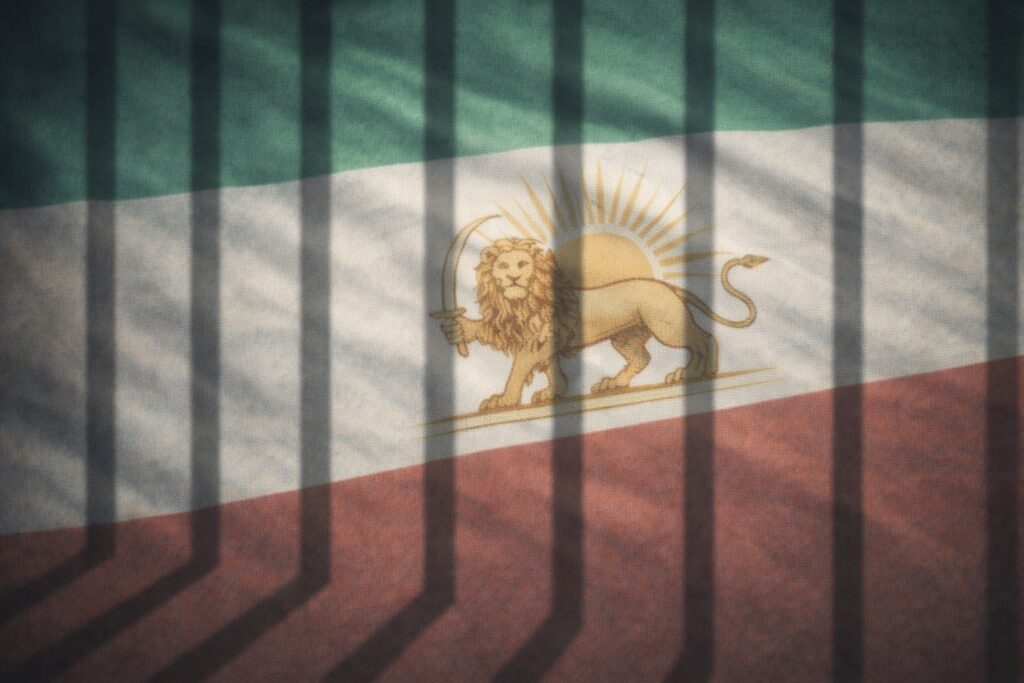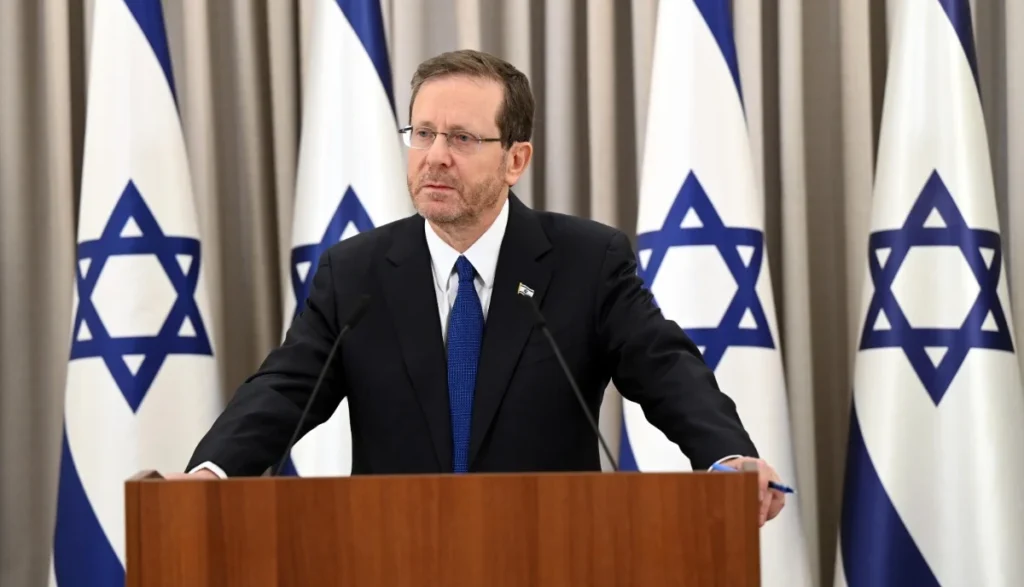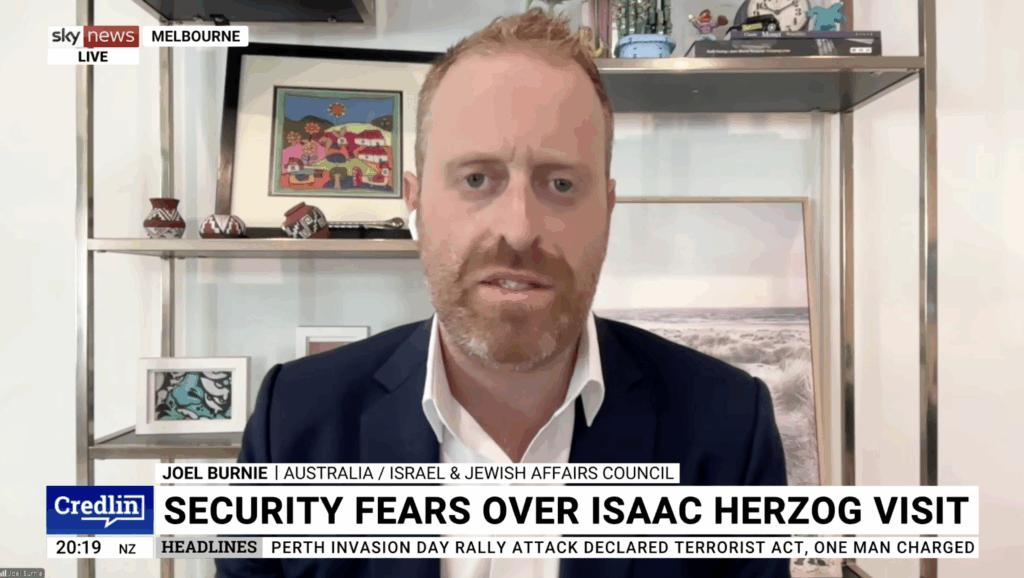UPDATES
Arab and Palestinian opinions on peace
October 22, 2010 | AIJAC staff
Update from AIJAC
Oct. 22, 2010
Number 10/10 #04
Today’s Update features three pieces relating to the question of how Arabs, especially the Palestinian public and the Arab states, look at the prospects of an Israeli-Palestinian two-state agreement.
First up is British-Jordanian academic Mudar Zahran who, in the wake of the Arab League’s recent endorsement of PA President Mahmoud Abbas’ demand for a renewed settlement freeze as a condition for continued negotiations, looks at the how these states regard a peace deal. He argues that some states gain political importance and clout in the region from the conflict and therefore may not in fact be keen to see it resolved. He also points out that some states gain financial support for hosting Palestinian “refugees” on their soil, and they may not be eager to see this problem settled and the subsidies ended. For Zahran’s full arguments on why it should not be assumed that Arab states want to actually help end the conflict, CLICK HERE.
Next up, Jonathan Schanzer and Mark Dubowitz of the Foundation for the Defense of Democracies, a Washington thinktank, reveal some new research into what Palestinians say amongst themselves on online social media, such as facebook. They find that sadly, online media for Palestinians is dominated by radicals, and much of the positive engagement among differing factions is between Hamas supporters and al-Qaeda-style Salafists, while Fatah and Hamas supporters often snipe angrily at each other. The study also reveals considerable support for violence against Israel, Fatah still in disarray, and little confidence in either negotiations or the current Palestinian Authority leadership. For the rest of the details about this troubling study, CLICK HERE.
Finally, American columnist David Suissa takes a speculative look at how Israel might look to a gay Palestinian who was well-informed about the rights of Arab citizens of Israel. Using the debate about the controversial changes to a loyalty oath in Israel to include wording about a “Jewish and democratic state” , Suissa takes note of the many positives a Palestinian, gay or otherwise, might perceive in Israel compared to the West Bank or Arab states. Suissa also makes some original arguments about the oath issue itself (Note: Suissa does not seem to have caught up with the change to the proposal made earlier this week whereby it will apply, if passed, to all naturalised citizens, regardless of background), which one may or may not agree with. For this interesting piece in full, CLICK HERE. An alternative view on the oath issue comes from former Israeli general and Washington Institute scholar Michael Herzog.
Readers may also be interested in:
- A report Israel’s controversial Citizenship Oath amendment currently does not seem to have the numbers to pass the Israeli Knesset.
- Washington Post columnist Jackson Diehl says mistaken Obama Administration policy on settlements is primarily responsible for the current impasse over restarting the talks. The New York Daily News makes some similar points.
- Some other interesting analysis of the current impasse and how to get out of it is here, here, here, here and here.
- Some differing analysis of Iranian President Ahmadinejad’s trip to Lebanon here, here, here, here and here.
- More on the new use of the Gaza smuggling tunnels to smuggle products, many of them Israeli, from Gaza into Egypt.
- A transcript of a talk about the history of Islam and the rise of radical Islamism given by Dr. Daniel Pipes in Perth in August.
- The Wall Street Journal argues Canada should regard it as a badge of honour that Arab and Islamic blocs at the UN blackballed Canada’s efforts to get a temporary UN Security Council seat.
Do the Arabs want peace?
Several Mideast countries have gained political prominence because of the Palestinian-Israeli conflict. Is a peace deal in their interest?
By MUDAR ZAHRAN
Jerusalem Post, 17/10/2010
Arab League states have announced their support of Palestinian Authority President Mahmoud Abbas’s call for a complete halt of all settlement activity in order to resume negotiations. This decision is not all support for Abbas, as freezing the settlement activities has recently been an Arab states’ demand rather than a Palestinian one.
Recently, King Abdullah II of Jordan addressed the United Nations and said the settlements posed a major threat to the peace talks, and could actually lead to a major war.
This sentiment has been promoted heavily by the government-controlled Arab media.
This is not the first time Arab states have rushed to create mythological obstacles to peace; they have a history of obstructing their Palestinian brothers’ quest for their own state.This goes back to 1947, when the Arab League rejected UN General Assembly Resolution 181, which would have created an Arab state and a Jewish state side by side.
Abbas’ predecessor Yasser Arafat, despite his dogmatism, still came under excessive anti-peace pressure even from Arab countries allegedly most supportive of peace. After his death, some of Arafat’s advisers claimed Arab interference played a role in his lack of resilience on issues like Jerusalem and the “right or return.”
Therefore, Arab leaders’ ranting about Israeli settlements is the most recent episode of an old trick – playing both ends (the Israelis and the Palestinians) against the middle. Once those leaders have labeled any issues as a “red line” or a “sacred Arab right,” it becomes difficult for the Palestinian Authority to negotiate freely over any of them.
Some Arab countries have been playing this game very well, and are putting pressure on the Palestinian leaders to make extreme demands for Israeli concessions and thus bring peace talks to failure every time.
Arab states’ influence does not stop with Abbas, as they have a level of influence in America that collectively outpowers the Israeli lobby.
With the above dynamics in action, it seems that many Arab states do not desire the Palestinians to reach a peace agreement; which prompts the questions about what motivates them.
SEVERAL ARAB countries have, in fact, gained political prominence because of the Palestinian-Israeli conflict. The no-peace-no-war paradox has formed a political lifeline for many of those countries, and therefore it would be irrational to believe they would want the cause of their significance to end, even if only for a while, let alone in “a permanently lasting peace.”
This explains why Egypt, Saudi Arabia and Qatar have been very supportive of the peace process, as those countries have a genuine political presence in the region. Therefore achieving peace would just add to their political prominence. This may not be the case for many other Arab countries, and therefore the way they approach the peace process is much different.
Another reason peace may not be in the best interest of some Arab countries is the fact that all Arab countries hosting Palestinians still label them as refugees, even where they make up the majority, and therefore those countries receive substantial international aid for “hosting” their “refugee citizens.” Progress in peace talks will eventually solve the issue of Palestinians living in Arab countries, and would end the economic privileges the so-called host countries are enjoying.
In addition, Arab countries neighboring Israel realize that a future Palestinian state must naturally seek a demographic and a geographic outlet, which poses a threat for those countries’ political regimes, as some fear that the dominating Palestinian influence would crush their ruling-class makeup.
Arab states lobbying against peace talks and pushing the Palestinians to adopt extreme positions are jeopardizing the region’s stability and therefore the world. Arab states alleging friendship to Israel and the US must officially acknowledge that peace requires sacrifice from all parties, including Arab states, especially on issues such as the Palestinians living in Arab countries, settlements and notions about Jerusalem. If they are not willing to do that, then they can at least stop distorting peace efforts with their lavish propaganda.
An Arab proverb goes: “God save me from my friends, then from my enemies.”
As talks are progressing, both Israel and the Palestinian Authority should be very careful while listening to their Arab “friends.”
The writer, a Jordanian of Palestinian heritage, is a researcher at the University of Bedfordshire.
Back to Top
————————————————————————
Palestine’s Web 2.0
Jonathan Schanzer, Mark Dubowitz
The National Interest, October 18, 2010
In the waning days of his presidency, Bill Clinton believed Yasir Arafat and the Palestinians were prepared to make peace. In September 2000, the Palestinians launched a guerrilla war. Five years later, President George W. Bush believed the secular Fatah faction would win the Palestinian legislative elections of 2006. Instead, the Islamist terror organization Hamas won by a large margin. Drawing from erroneous poll data and misreading the realities on the ground, Washington has too often minimized antipeace sentiment on the Palestinian street. Is President Barack Obama, in his current push for Middle East peace, about to repeat the mistakes of presidents past?
Imagine that Obama’s advisors could simultaneously sit in a dozen Palestinian markets, or souks, and listen to thousands of Palestinians speaking in Arabic about U.S. policy priorities in the Middle East. More importantly, imagine those conversations had no outside influence.
In April 2010, we launched a study with that in mind. Our organization, the Foundation for Defense of Democracies (FDD), commissioned ConStrat, a company that deploys military-grade technology on behalf of the United States Central Command, to study online Palestinian political sentiment. For nine weeks, ConStrat culled thousands of Arabic language posts from search engines, unstructured social media sites, YouTube, Twitter, social networks (like Facebook), wikis, and RSS feeds.
While polls are often designed to elicit specific responses, social media is largely free of outside manipulation. Most Palestinians write under pseudonyms, enabling them to discuss controversial issues without fear of retribution. Admittedly, social media captures only the sentiments of literate Palestinians with access to computers and with passionate views. But it offers important insights nonetheless.
Here’s what we found: Although the Palestinian web landscape is not devoid of users with moderate to liberal views, it is dominated by radicalism. There is also little crossover between radical and liberal sites, indicating a lack of important debate.
Among radicalized users, a small but distinct group of Salafists (prevalent on sites like muslm.net and aljazeeratalk.net) view conflict with Israel as a religious duty, viewing jihad as the only answer. One alarming trend was the extent to which Hamas supporters engaged Salafists in dialogue to iron out their theological differences. If Hamas and these Taliban-like groups find common cause in Gaza, it would bode very poorly for peace.
To be sure, Hamas’s supporters were not monolithic about politics or Islam. But, drawing from Hamas’ most popular discussion sites, our research found that a majority of them continue to support violence against Israel. On this score, Hamas showed little disagreement with Salafists.
The data also confirmed what analysts already know about Fatah in the West Bank. Though it represents Palestinians in U.S.-led peace talks, Fatah is a faction in disarray. Politically, it lacks leadership. Ideologically, it lacks direction. Web users indicated this repeatedly on Fatah’s largest online forums: Voice of Palestine (palvoice.com) and Fatah Forum (fatehforums.com).
Our findings revealed that Fatah’s three-year conflict with Hamas (stemming from the violent Hamas coup in the Gaza Strip in 2007) is particularly harsh online. The two sides regularly traded barbs, and FDD found little evidence of rapprochement. Hamas supporters were more interested in reconciling with Salafists. Fatah supporters were more interested in decrying Hamas’ failures in Gaza.
And while U.S. media has lauded Palestinian Prime Minister Salaam Fayyad’s efforts to reform the West Bank, online forums indicate that Palestinians are not impressed. Some forums circulated articles declaring Fayyad a puppet of the West, while others claimed that his government is constitutionally illegitimate. More broadly, Palestinians are deeply suspicious of any collaboration with the United States, Fayyad’s most important political ally.
Finally, our data showed that a majority of Palestinians do not support regional peace efforts. Palestinian internet users often derided diplomatic initiatives; discussion of peace talks was overwhelmingly negative. Thus, despite Washington’s efforts to win Palestinian hearts and minds, the social media environment suggests that they have little support for a new peace initiative.
As our study showed, now may not be an ideal time to push for a final agreement between Israel and the Palestinians. With talks already underway, the genie is already out of the bottle, but the Obama administration could become a more effective and informed broker of peace if it pays heed to the grim realities on the ground.
Back to Top
————————————————————————
The Loyalty Oath Is a Good Deal
David Suissa
Huffington Post,
Posted: October 21, 2010 04:32 PM
Maybe it’s because I was a Jew in an Arab country that I have a slightly different take on the loyalty oath controversy. Imagine, for a minute, that your name is Ahmed and you are a gay Palestinian living in Ramallah. You live in fear of being outed, ostracized, even jailed and tortured. A few miles away is a Jewish and democratic nation called Israel. Your partner, who is Arab and lives there, has been telling you for years that he suffers no discrimination from being gay. In fact, a few months ago, he danced in the Gay Pride Parade in Jerusalem with full protection from the Israeli authorities.
Lately, you’ve been doing research on Google to find out more about how Israel treats its minorities. You’re doing this because since you were a child, you have been taught that Jews are the “sons of dogs” who have no connection to this land and are deserving only of hatred. How could such “sons of dogs” be so respectful of Arab homosexuals?
You learn in your research that Arabs living in Israel enjoy free health care and welfare benefits; democratic rights, like freedom of speech, freedom of religion and freedom to vote; full women’s rights; and opportunities to learn at great universities.
You also discover the following items about Israeli Arabs: the existence of Arab political parties in the Israeli government like Hadash, Balad and Ra’amTa’al, which have the right to promote even incendiary things like the Palestinian “right of return” and the dismantling of Israel’s nuclear arsenal; NGOs like Adalah: the Legal Center for Arab Minority Rights in Israel, which helps minorities seek legal redress; Ali Yahya, Israel’s Arab ambassador to Greece; Salim Joubran, Supreme Court justice; and Oscar Abu-Razek, director general of the Ministry of Interior.
You also learn about Raleb Majadele, the first Arab Cabinet minister in Israel; Jamal Hakrush, assistant commander in Israel’s National Police; Rana Raslan, the first Arab to win a Miss Israel contest; Bnei Sakhnin, the first Arab soccer team to win Israel’s State Cup; Asala Shahada, an Arab who won a gold medal at the Maccabiah games; and Majd el-Haj, an Arab sociology professor at Haifa University who was promoted to dean of research at the university.
You ask yourself: How could all these Arabs be so successful in a Jewish state that is supposed to favor Jews and discriminate against Arabs?
As you research the answer, you come across this finding from a report of the U.S. State Department: “Most of the Arab states are ruled by oppressive, dictatorial regimes, which deny their citizens basic freedoms of political expression, speech, press and due process.” Aha!, you say, maybe that explains why Arabs in Israel are not clamoring to leave the Jewish state and join their brethren in other Arab countries.
You then find Israel’s Declaration of Independence, which affirms the full legal and human rights of all its citizens, Jew and non-Jew alike. Because you have been taught to believe that the birth of Israel is a “catastrophe” and that Jews have no connection to the land, you are surprised to discover the 3,000-year connection of the Jewish people to Israel. This helps you understand Israel’s Law of Return, which states that Jews become automatic citizens when they “return home” to Israel.
Finally, you read about a recent and controversial amendment to Israel’s citizen loyalty oath. The proposed amendment would require non-Jewish foreigners wishing to become Israeli citizens to declare loyalty not just to the State of Israel, but to the “Jewish and democratic” State of Israel.
So you think: I would be able to live as a proud and free homosexual and enjoy all the other civil rights and benefits in return for taking a loyalty oath to a “Jewish and democratic” state? Hey, that sounds like a pretty good deal to me. What’s all the fuss about?
The fuss, Ahmed, is that a lot of people think this initiative is offensive and discriminatory — that it is OK for a non-Jew to pledge loyalty to the State of Israel, but not to the “Jewish and democratic” State of Israel.
So what do I think?
First, I don’t get all the hysterics. I might see the problem if the oath were only to a “Jewish” state, but to a “Jewish and democratic” state? Doesn’t that addition make all the difference in the world? Isn’t it democracy that enables Arab citizens to become Supreme Court justices, university professors or the second in command of the National Police?
A non-Jew gains a lot more by the word “democratic” than he loses by the word “Jewish.” If an Arab man like Ahmed, for example, ever marries his partner in Tel Aviv and has to make his oath of loyalty to a “Jewish and democratic” state, he won’t be thinking of how Jewish Israel is, but how democratic it is and respectful of his human right to enter into a gay marriage.
As a Sephardic Jew, I can tell you that Jews who lived for centuries as good citizens of Arab countries would have loved nothing more than to pledge loyalty to a “Muslim and democratic state” in return for the same freedoms, rights and protections that Arabs enjoy today in Israel.
But what about the fact that Jews become automatic citizens and don’t have to take this oath? Isn’t that a racist idea? Not according to my friend Yossi Klein Halevi, who writes in an e-mail from Jerusalem:
There is a difference between an oleh [one who makes aliyah] who is repatriating home and a foreigner being naturalized. Many democracies require loyalty oaths of naturalizing citizens. The point of a Jewish state is that Jews aren’t like naturalizing citizens — they are olim returning home. That distinction is crucial for affirming who we are. This is not about racism — it is about a reaffirmation of our right to define ourselves as a people returning home.
If and when the Palestinians create a state, the first law they are likely to pass will be their version of our law of return, granting automatic citizenship to returning Palestinians. If an outsider wants to become a Palestinian citizen, he/she would no doubt have to go through a longer process.
Personally, whether it’s part of a citizenship process or not, I’d love to see a national pledge of allegiance to a “Jewish and democratic” Israel. In fact, it ought to become a subject of study in Israeli schools and universities and part of a national conversation where every group gets to contribute its thoughts to this work in progress.
Both words — “Jewish” and “democratic” — are complicated and multilayered. Their marriage represents one of the great Jewish ideals — the collective project that Jews have come home to after almost 2,000 years.
Featuring this ideal in the loyalty oath reminds Israel of its obligations to all of its citizens, not just to its Jewish ones. As much as the applicant makes a formal gesture of loyalty, Israel makes a formal commitment of its democratic promise. The issue of who is required to take the oath is a fair one, but it shouldn’t cloud the central fact that the oath itself is an especially good deal for minorities looking for official protection of their democratic rights.
That’s why I can’t understand the hysterical reaction of many Jews who have recoiled in shame and horror at this initiative, as if Israel had just decided to shut down every Arab newspaper or board up every mosque.
Yes, Israel could have done a better job of presenting the initiative, which suffered from awkward timing and its association with Yisrael Beitenu. But Israel’s political clumsiness is even more reason for Israel supporters to reaffirm and defend the country’s moral standing.
Despite all its faults, and despite being in a permanent state of war with enemies at its doorstep, Israel is still, by far, the most open and civil society in the Middle East. Think about that. The best place for an Arab to be free and successful in the Middle East is in a Jewish state under siege by Arabs. Incredible, no?
If Israel were smart, it would initiate a massive PR effort promoting the freedoms, rights and opportunities that Arabs get in Israel that they can never get in other Arab countries. It would show the world that its loyalty oath is a shining light in the Middle East cesspool.
A good place to start would be with Arabs like Ahmed from Ramallah, who dreams of signing an oath that would free him to be gay and dance in public with his Arab-Israeli partner next year in Jerusalem.
David Suissa is founder of OLAM magazine, OLAM.org and weekly columnist for the Los Angeles Jewish Journal.
Tags: Israel





